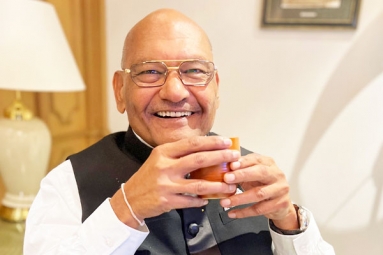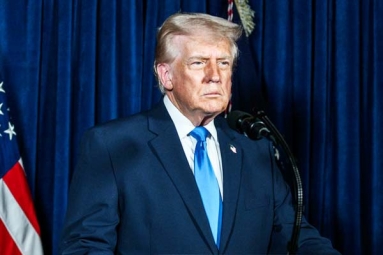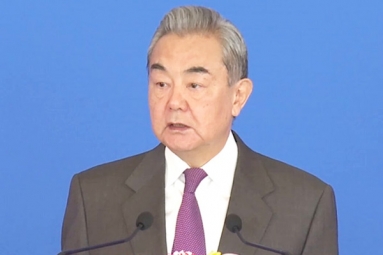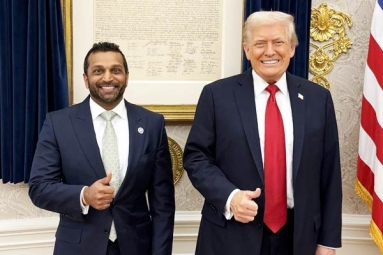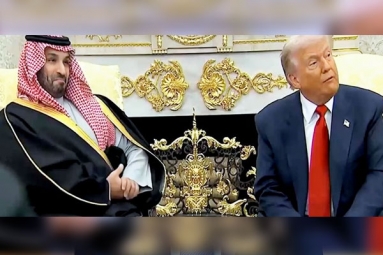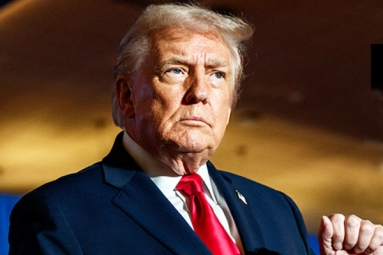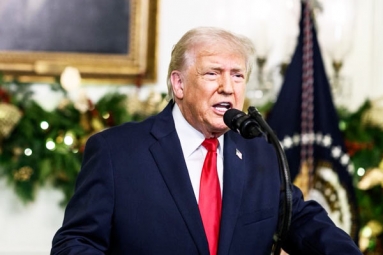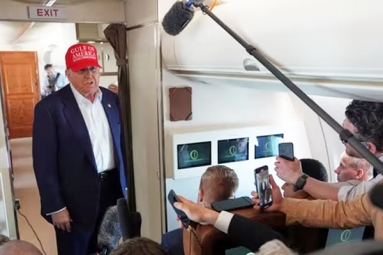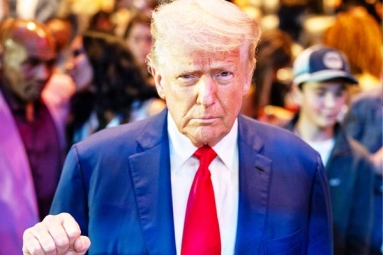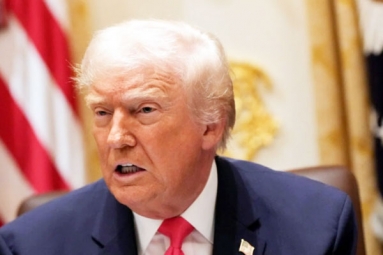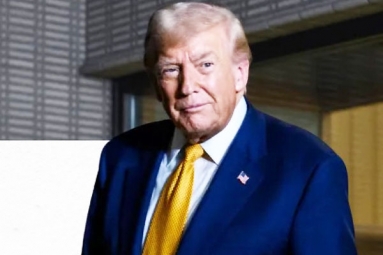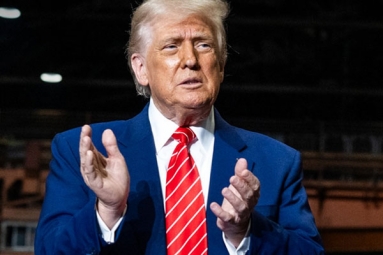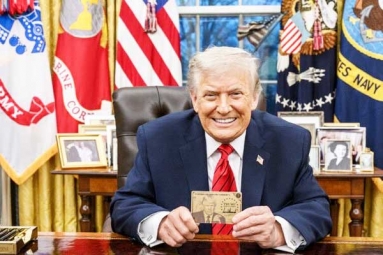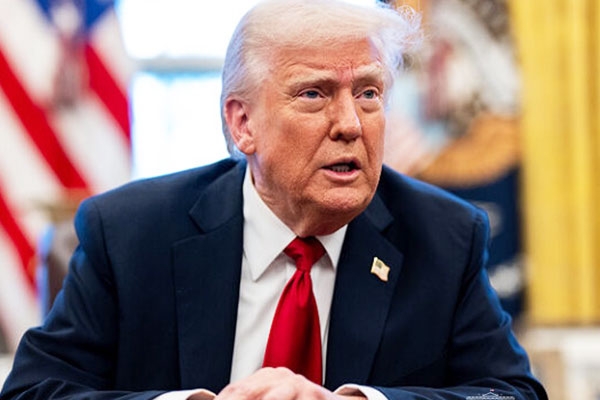
(Image source from: x.com/WhiteHouse)
Two years ago today, Hamas launched an attack on Israel, committing a massacre and taking over 200 people hostage in their tunnels in Gaza. That incident sparked an ongoing war in Gaza, which continues even two years later. Now, Donald Trump has come forward with a 13-point plan that he claims can bring an end to this tragic situation that has resulted in nearly 70,000 deaths. The world might finally see a glimmer of hope, but it's more like a train speeding toward us. Leading this approach is Donald J. Trump, who confidently asserts, in all capital letters, that he has “THE GREATEST PEACE DEAL EVER. NO BLOOD, NO BOMBS, JUST HUGE HUGS!" This plan is less of a true treaty and more like a dangerous agreement disguised in fancy wrapping. When the Grim Reaper gives you a pen, it's wise to examine the details closely; or in Trump’s case, the hidden messages.
Let’s break down this impressive document. Imagine a poorly lit room in Sharm al-Sheikh, a place familiar to many Indians. On one side, Israeli negotiators with serious expressions are holding maps that conveniently change borders during discussions. On the other side, Hamas's remaining leaders are compelled to sign a paper that sounds like a death sentence for them. "Article 1: Hamas will cease to exist immediately. Article 2: In return, we agree not to laugh too loudly." It’s quite clever, or as Trump might put it, "tremendous cleverness." To resolve an issue, you eliminate it? Consider the conversation: "Khaled Mashal, my buddy with a strong history, sign here, and you can become famous on Instagram as the first terrorist who erased himself. Hashtag MartyredByMutualConsent!" The tragic twist here is that any agreement requires both sides to keep their promises. Israel commits to restraint (a wink included), money for rebuilding flows in, and Gaza gets new shiny buildings. Maybe Trump Tower? Hamas, on the other hand, vows to... well, stop being Hamas. No more rockets, no more tunnels, just a courteous farewell. But who is going to enforce the Palestinian side once everything is signed and the group disappears? Is there a ghostly member of Hamas lingering in the ruins, checking off tasks in the air?
The sole Palestinian group involved in this agreement ceases to exist, while the Palestinian Authority must change to gain credibility. Israel decides when its army withdraws from Gaza. An American-led group (comprised of contractors and profit-makers) along with Arab allies manages the rebuilding process. The people of Gaza? They have no voice, only orders to follow.
Or does Trump picture a bizarre clause: "If Hamas doesn’t follow through, we’ll bring them back for mediation?" It’s like asking someone to leap off a cliff while guaranteeing them a parachute that is labeled "Made in Tel Aviv.” One might expect that the sheikhs and sultans would be eager to support this heavenly idea. After all, who wouldn’t be in favor of a proposal that brings an end to a conflict without their involvement? Saudi Arabia whispers something about “regional stability.” Egypt eagerly nods, hoping for more cash from Washington. Jordan is busy shining up its peace agreement with Israel from 1994. They’ve all shown support for the "concept" of talks. But these are vague and empty endorsements that could apply to anything from falafel dishes to new energy methods.
Details? Silence! No one wants to tackle the sensitive subject of Hamas's punishment. It’s like giving a thumbs up to a post on social media without actually engaging with its content: courteous, useless, and dangerously close to being complicit.
Even Pakistan, that unpredictable player in global politics, started out strong. Shahbaz Sharif called it a "bold move towards calming tensions." But then, surprise, a week later comes a change of heart: "Uh, on second thought..." Why the sudden shift? Maybe it came after a late-night message from Beijing, or perhaps the realization that supporting a deal that wipes out a Sunni movement doesn’t look good when dealing with the Taliban. Or, cynically, it's the classic Pakistani strategy: show support openly, undermine secretly. After all, in the marketplace of politics, you make a commitment and then try to negotiate.
Now, let’s take a step back to see the main issue: the glaring absence of the Palestinian Authority. The PA, that struggling organization in Ramallah, isn’t even part of the discussion. They’re like the unwanted relatives at a rushed wedding: connected, but not needed. Besides, Trump values power. Mahmoud Abbas may have impressive degrees and UN resolutions. But this situation is about the fighters. Excluding the people widely seen as the representatives of 6 million Palestinians is not only insensitive but also a lesson in colonial role-playing. The agreement is pushed by America and its willing Arab partners (view them as client states or American followers). Palestinians have no say, no adjustments, just a front-row view of their own marginalization.
Israelis? Honestly, they don't desire the two-state solution that America's Arab allies want. Israelis prefer that Gazans move to Egypt, completely leaving behind their homes. They want to take control of the West Bank due to its settlements. They appear to be agreeing to terms, or so the story goes: Netanyahu is looking for a victory. As long as the detailed plans for ongoing occupation are hidden away, he wouldn’t mind. Is this really an agreement? Or is it a diplomatic scam, where those at the bottom support the schemes of those at the top? It breaks all important rules of negotiation: fairness, consent, compromise, and the essential principle of “Nothing about us without us.” Remember Oslo? Camp David? Those weren’t perfect, but at least the Palestinians were included, even if their position was shaky. Trump's agreement is a solo performance pretending to be a conversation, a confusing tower built on mistrust and unrealistic dreams.
Ultimately, this peace proposal is not just likely to fail; it is destined for failure from the start, a self-destructive plan meant for the rubbish bin of unrealistic ideas. Hamas will not agree. Why would they want to, when it would mean their end? Israel won’t change. Why share the rewards when they can enjoy everything alone? And the Arab nations? They will continue to cheer from the sidelines, waiting for the next chapter in this endless drama. If Hamas signs this agreement, it would simply turn into something different. Think about the level of anger that led to October 7. Now consider that multiplied by 70,000. That’s where the younger Gazans are right now, after losing their homes and families. This pause or ceasefire won't be long-lasting if the Palestinians aren't involved. This also involves religious conflict. Trump keeps mentioning "the war they have been fighting for thousands of years." He is correct about this. Religious teachings sometimes selectively use verses that promote violence to fit their political goals. However, Muslims in the UAE don’t hunt down Jews. Economic success also selectively interprets verses that encourage peaceful coexistence. For those in Gaza, achieving economic success is a distant hope. It will take ten years to clear the debris. At least two generations needed to recover from the trauma of war. Trump seems focused only on the unreachable Nobel Prize.
Donald Trump believes that enforcing agreements is just about the "art of the deal." But in Gaza, the only skill is staying alive, and the only agreement is a deal with dire consequences. As the dust settles (or thickens), one fact remains: peace can't be achieved by pushing one side down completely. This can be termed the Trump Paradox, a major misstep in judgment, buried in failure right from the beginning.



